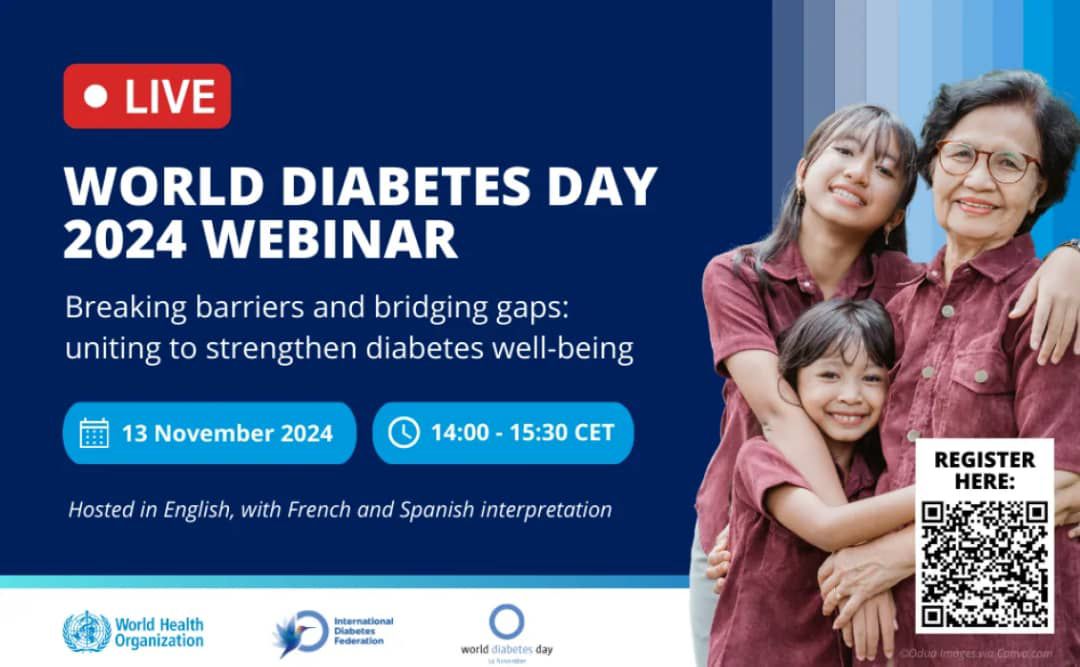
BY Onoja Baba, Nigeria
The Regional Director for Africa, World Health Organization (WHO), Dr. Matshidiso Moeti, has raised an alarm about the looming diabetes crisis in Africa, stressing that the continent is faced with unprecedented challenges in diabetes management due to chronic underfunding and healthcare limitations.
Moeti shared this in her message commemorating the 2024 World Diabetes Day, themed “Breaking Barriers, Bridging Gaps” hosted in an online Zoom webinar on Thursday.
She said: “Without urgent intervention, it is predicted that the number of people living with diabetes in the African region will rise to 54 million by 2045, the highest projected increase globally. This poses a significant dual health and economic burden, with individuals facing catastrophic costs to manage their condition,”
According to WHO, currently, over 24 million adults in Africa are living with diabetes, with half undiagnosed. Without appropriate treatment, these individuals are at high risk of severe complications, including heart disease, stroke, kidney failure, nerve damage, and vision loss. Yet, only 1% of the region’s health budget is allocated to diabetes, making it the world’s lowest in diabetes care investment.
Attributing the rise to urbanisation, unhealthy diets, and lack of physical activity, Moeti highlighted that current health systems in Africa are predominantly structured to address infectious diseases, with insufficient focus on chronic conditions like diabetes. She called for an urgent expansion of diabetes care within primary healthcare systems and greater investment in preventive care, diagnosis, and treatment.
Recently, African nations endorsed the WHO’s Framework for Implementing the Global Diabetes Compact in Africa, aimed at improving diabetes prevention and care access across the continent.
Moeti urged governments, communities, and individuals to rally around healthier lifestyles, supportive environments, and strengthened healthcare policies, emphasising that without immediate action, the continent could face devastating health and economic impacts.
categories
recent posts

Malawi Blood Transfusion Service Achieves 101% Blood Collection Target

NIGERIA: NAFDAC Reopens Onitsha Drug Market After One-Month Closure

NIGERIA: Alaafin’s Wife Charges Govt To Empower Women In Rural Areas

NIGERIA: Tinubu Embarks On Working Visit To Paris To Strategize For Second Tenure

